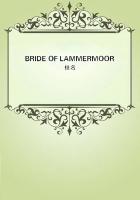"It is an island,distant from the mainland about eight miles."
"Did you anchor?"
"Yes;and found good anchorage in a bay open about six points."
"Did you see any other harbour or bay in the island?"
"None."
"Does the channel between the island and the main appear to afford good shelter for shipping?"
"Yes,like Spithead."
"Did you find any water on the island?"
"Yes,in plenty."
"Of what size does the island appear to be?"
"It is narrow and long;I cannot say how long.Its breadth is inconsiderable."
"Did you make any observations on the soil?"
"It is sandy;and many places are full of craggy rocks."
"Do you judge the productions which you saw on the island to be similar to those around Port Jackson?"
"I do not think they differ in any respect."
"Did you see any animals?"
"I saw three kangaroos."
"Did you see any natives,or any marks of them?"
"I saw no natives,but I saw a fire,and several huts like those at Port Jackson,in one of which lay a spear."
"What name did you give to your discovery?"
"I called it,in honour of my ship,Matilda Bay."
November,1791.A very extraordinary instance of folly stimulated to desperation occurred in the beginning of this month among the convicts at Rose Hill.Twenty men and a pregnant woman,part of those who had arrived in the last fleet,suddenly disappeared with their clothes,working tools,bedding,and their provisions,for the ensuing week,which had been just issued to them.The first intelligence heard of them,was from some convict settlers,who said they had seen them pass,and had enquired whither they were bound.To which they had received for answer,"to China."
The extravagance and infatuation of such an attempt was explained to them by the settlers;but neither derision,nor demonstration could avert them from pursuing their purpose.It was observed by those who brought in the account that they had general idea enough of the point of the compass in which China lies from Port Jackson,to keep in a northerly direction.
An officer with a detachment of troops,was sent in pursuit of them;
but after a harassing march returned without success.In the course of a week the greatest part of them were either brought back by different parties who had fallen in with them,or were driven in by famine.
Upon being questioned about the cause of their elopement,those whom hunger had forced back,did not hesitate to confess that they had been so grossly deceived as to believe that China might easily be reached,being not more than 100miles distant,and separated only by a river.
The others,however,ashamed of the merriment excited at their expense,said that their reason for running away was on account of being overworked and harshly treated,and that they preferred a solitary and precarious existence in the woods to a return to the misery they were compelled to undergo.One or two of the party had certainly perished by the hands of the natives,who had also wounded several others.
I trust that no man would feel more reluctant than myself to cast an illiberal national reflection,particularly on a people whom I regard in an aggregate sense as brethren and fellow-citizens;and among whom,I have the honour to number many of the most cordial and endearing intimacies which a life passed on service could generate.But it is certain that all these people were Irish.















